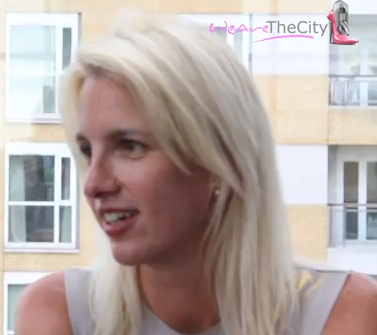Resilience is one of the key qualities that employers are looking for in their candidates. The recruitment press often talks about how graduates are leaving university without learning it. Or how employers can help their staff to achieve greater resilience.
Career women are only too aware of the extra challenges that face them, even in the 21st century. If the #metoo campaign showed us anything, it’s that women have often been required to ‘keep going’ in the face of incredibly challenging circumstances.
But what is resilience? How do we develop it and are there ways to show it without changing our personalities?
What is resilience
The dictionary definition of resilience is, ‘the capacity to recover quickly from difficulties; toughness’. Resilience, then, is sticking with difficult situations. Toughing things out. Not backing down from a challenge.
But all those qualities seem to be more fitting for the stereotypical male. If we are to show resilience in the workplace, do we have to deal with things in that way? Is it possible to be authentic to ourselves and yet still be considered capable?
Warrior woman
In her poem, In All Ways a Woman, Maya Angelou said that ‘warrior women’ should be both tough and tender. As those qualities are opposites, it seems that the poet and activist wanted us to choose which we should be at any time. Our toughness, then, is our armour to put on when the situation demands it.
But in a recent interview with The Telegraph, Cassandra Stravou, the founder of gourmet popcorn brand, Propercorn explained that toughness only got her so far. Finding herself considered a ‘naïve entrepreneur’ she realised that brazening through wasn’t the way.
So, she thought up a smarter way to compete with larger companies: using her creativity, and her ability to understand the supply chain and empathise with those who worked in it.
Realising that boxes of stock could easily get lost in a warehouse of similar brown boxes, she changed the design of her outer packaging. Her rebranded boxes, designed to look like suitcases, were easily identified and helped her stock get its way onto the shelves.
Developing resilience
Perhaps then, resilience for women is more about finding your own path than imitating a stereotypical masculine bullishness. How can we practice resilience so that it becomes second nature? Looking at lists of actions taken by resilient women, there are some themes which become obvious:
- Resilience is about adapting to the situation as it is, rather than how we hoped or planned it would be. It can be helpful to have thought through possible scenarios, so if the unexpected does happen are not caught completely unprepared.
- It’s also about pressing forward, even when difficulties arise. The appearance of calm and control is important; if you do need to have a tearful moment or let out a frustrated scream, do it where you’re not observed.
- A resilient leader can separate the role from their personality. It is about coming to an understanding that you are a part of something, not the whole of it, which makes remaining stable far easier. You are not alone.
- Taking good care of yourself ensures that you have the reserves to meet challenges. This also means being kind to yourself. Learn from the past, but don’t beat yourself up over it. Treat yourself as you would treat one of your employees; accept errors and move on.
- Make sure that you have a support network to fall back on. Networking can be a great way of finding people you can call on when problems arise.
- Don’t be defensive. Resilience isn’t about taking criticism and deflecting it onto others, it’s about being the person who takes control of a problem and solves it.
Feminine toughness
What seems clear is that resilience is not simply about toughness. Rather it’s about many of those qualities which are considered innately female.
Women, throughout history, have continued in the face of adversity. We have come together, to support each other and those dear to us. We have made a stand when it was necessary, and shown endless empathy when that was what was needed instead.
There is a lot of talk about a cultural shift in the wake of the #metoo campaign, and the allegations of sexual assault which are coming from all around the world. Perhaps one thing that can come out of the shared experiences of women is a new understanding of resilience. It is not about toughness, at least not without the balancing tenderness.
To finish with the closing line from ‘In All Ways a Woman’: “The struggle for equality continues unabated, and the woman warrior who is armed with wit and courage will be among the first to celebrate victory.”
About the author
Sarah Dixon writes for Inspiring Interns, which helps career starters find the perfect job, in everything from sales jobs to marketing internships. To browse our graduate jobs London listings, visit our website.









